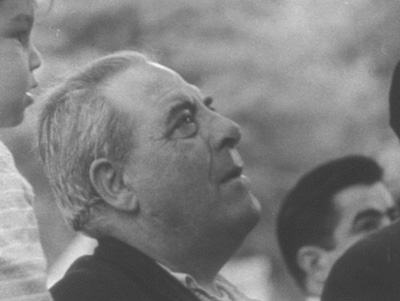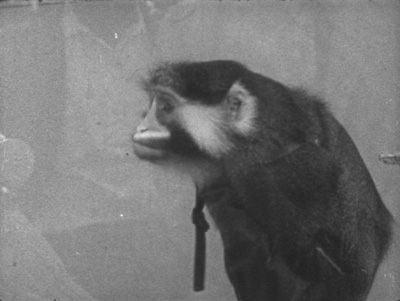

1964, 16 mm, b/w, sound, 9 min.
"Few films are as movingly bleak as Arthur Lipsett's little-known 21-87 (1964).
This stunning evocation of dehumanization juxtaposes footage from several cities, using synthetic editing to create new meanings.
Cuts between images that don't match - crowds seen from different camera angles or under different light - subtly express alienation.
The editing also creates surrealistic illusions - for example, jumping from a man looking upward to an image of a monkey. This appears to answer the quest for some transcendent truth with a reductive joke, except that the monkey isn't altogether a negative presence either: animals are as likely paths to enlightenment as humans in Lipsett's view, and in fact some of the people looking upward appear to be contemplating birds in the sky in a park in the center of Montreal. Shots of anonymous crowds are combined with shots of people playing roles that were central to the film's era - models at a fashion show, a man in a space suit, kids shaking like automatons to (one assumes) rock 'n' roll music. Such identity-alternating roles steal the idea of the soul; everyone in the film seems tragically removed from any possible authenticity.
Lipsett uses sound ironically; at midpoint and again at the film's end a voice seems to declare that everyone is proud to have a number rather than a name, announcing, "Somebody walks up and they say, 'Your number is 21-87, isn't it?' Boy does that person really smile."
The fear of being reduced to a number was a common theme in 1963, when computers were first coming into public consciousness."
Fred Camper
revised from a "Critic's Choice" that appeared in the Chicago Reader, May 12, 1995
